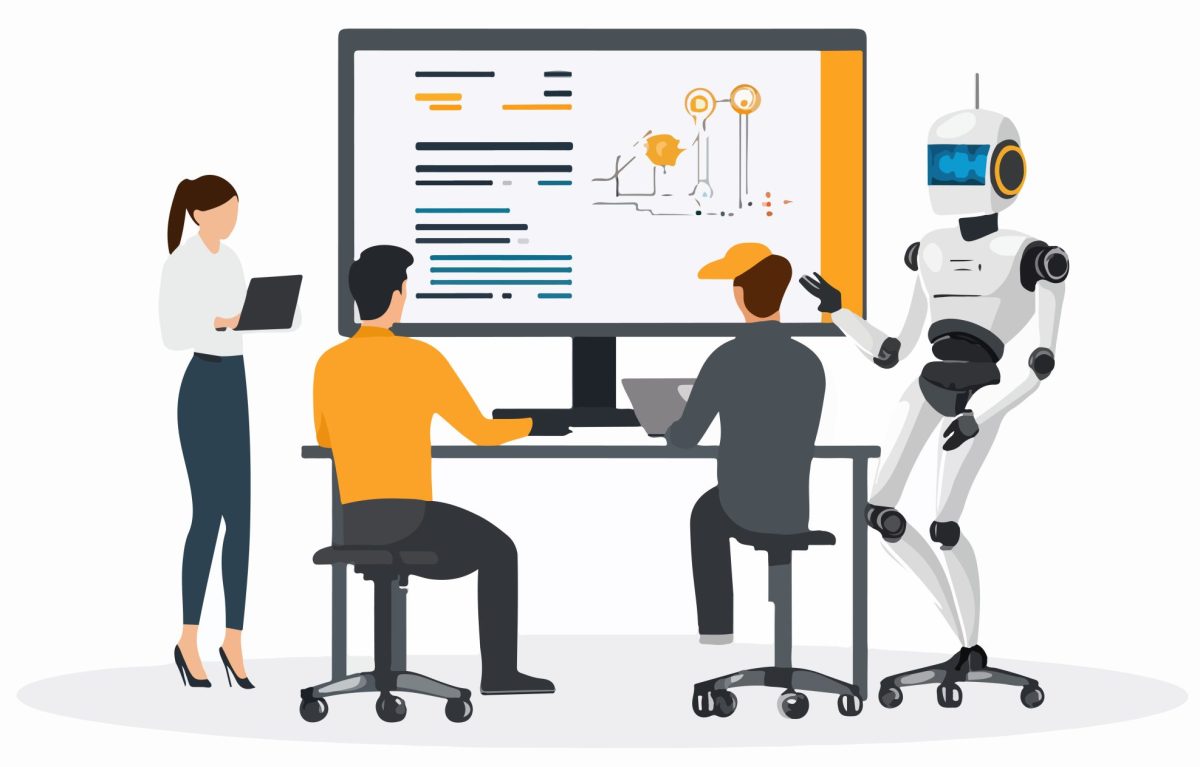As we enter 2026, the corporate world is witnessing a major transformation in how employees learn, adapt, and grow within organisations. Traditional training programs, once reliant on static modules and one-size-fits-all content, are being replaced by more intelligent, data-driven approaches powered by AI in Corporate Training. Companies are now using artificial intelligence to personalise learning, assess skill gaps, and enhance overall workforce productivity. This evolution isn’t just about digitising corporate education, it’s about reimagining it through intelligent automation, predictive insights, and adaptive learning.
What is AI in Corporate Training?
AI in Corporate Training refers to the integration of artificial intelligence technologies into employee learning and development processes. It involves leveraging machine learning, natural language processing (NLP), and data analytics to tailor training experiences, evaluate learner performance, and predict future training needs.
Instead of offering generic e-learning courses, AI-driven platforms can identify each employee’s strengths, weaknesses, and learning styles, delivering customised content accordingly. From onboarding to leadership development, AI ensures that every learning experience is optimised for engagement, retention, and business outcomes.
AI in Corporate Training also enables organisations to automate content recommendations, analyse real-time feedback, and create training paths that align with company objectives. The result is a smarter, more efficient, and outcome-focused training ecosystem.
The Role of AI in Corporate Training
1. Personalised Learning Experiences
AI algorithms assess employee performance, skill levels, and learning preferences to deliver tailored learning paths. Instead of generic courses, employees receive recommendations that directly address their unique skill gaps, resulting in faster learning and improved retention.
2. Intelligent Performance Analysis
AI-powered analytics tools evaluate learner engagement and success rates in real time. By analysing participation data and assessment outcomes, organisations gain actionable insights into which training modules are effective and where improvement is needed.
3. Adaptive Learning Platforms
AI in Corporate Training brings adaptive learning environments that adjust content difficulty based on learner performance. If an employee struggles with a particular concept, AI automatically provides additional resources and simpler explanations to reinforce understanding.
4. Predictive Skill Development
Predictive analytics play a vital role in forecasting future skill needs. AI systems analyse industry trends, internal performance data, and job role changes to suggest upcoming training programs, ensuring employees remain future-ready.
5. Virtual Mentorship and AI Assistants
AI-driven virtual mentors, similar to intelligent chatbots, support learners by answering queries, providing feedback, and suggesting next steps. This real-time guidance replicates the benefits of one-on-one mentorship at scale, improving employee confidence and engagement.
6. Enhanced Knowledge Retention
By using spaced repetition and microlearning techniques, AI in Corporate Training ensures information is reinforced at the right intervals. This approach boosts long-term memory retention and minimises the loss of valuable knowledge after training sessions.
The 2026 Guide: Implementing AI in Corporate Training
Step 1: Assess Current Training Infrastructure
Before adopting AI, organisations must evaluate their existing learning management systems (LMS) and identify gaps in personalisation, analytics, and scalability.
Step 2: Define Clear Learning Objectives
AI systems work best when they’re aligned with measurable goals such as skill enhancement, productivity gains, or leadership development. Setting clear KPIs ensures a focused training strategy.
Step 3: Integrate AI-Powered Learning Tools
Implement AI solutions that can analyse learner data, recommend courses, and generate insights. Integration with existing HR systems ensures seamless tracking of progress and outcomes.
Step 4: Monitor and Optimise Continuously
AI thrives on data. Regularly analyse insights from training outcomes to refine content, update modules, and maintain relevance as the business evolves.
Step 5: Encourage a Culture of Continuous Learning
AI in Corporate Training supports lifelong learning. Encouraging employees to embrace adaptive learning platforms ensures continuous growth and long-term engagement.
Challenges Companies Face Without AI in Corporate Training
Organisations that fail to integrate AI into corporate training risk lagging behind their competitors in workforce agility and innovation. Without AI, companies often face:
1. Generic Learning Experiences: Traditional methods lack personalisation, leading to low engagement and poor knowledge retention.
2. Inefficient Skill Assessments: Manual performance tracking fails to identify skill gaps or learning trends accurately.
3. Limited Scalability: Human-led training cannot efficiently adapt to large or diverse teams across multiple departments or regions.
4. Reactive, Not Predictive, Strategies: Without predictive insights, businesses struggle to prepare their workforce for emerging challenges and evolving roles.
By neglecting AI integration, organisations miss out on critical insights that could drive talent optimisation and strategic decision-making.
How Stratpilot Can Revolutionise Corporate Training
Stratpilot stands out as an AI-driven productivity and learning companion designed to empower teams and enhance decision-making across industries. In the context of corporate training, Stratpilot helps businesses adopt AI capabilities effortlessly by offering pre-designed, intelligent templates that simplify training workflows.
With its intelligent guidance system, Stratpilot enables HR and training leaders to identify skill gaps, track employee progress, and receive actionable insights to optimise learning outcomes. Unlike traditional platforms that require extensive customisation, Stratpilot’s AI-driven features ensure ease of use, adaptability, and scalability.
By leveraging Stratpilot, organisations can foster smarter learning environments, ensure data-backed decisions, and empower employees to reach their potential faster. It’s not just about training, it’s about transforming how teams learn, grow, and perform in 2026 and beyond.
Request a demo for Stratpilot today
Experience how Stratpilot can redefine your organisation’s approach to corporate training and workforce development. Request a demo today and see how AI-driven insights can make your learning initiatives more impactful, efficient, and future-ready.
Frequently Asked Questions (FAQs)
Q1: How can AI improve employee learning experiences in corporate training?
AI personalises training by analysing employee data to deliver customised learning paths. It identifies strengths, weaknesses, and learning preferences to enhance engagement and retention.
Q2: Is AI in Corporate Training suitable for small and medium-sized enterprises?
Yes. AI-powered training tools can be scaled to fit the needs of businesses of any size, making them ideal for SMEs that aim to maximise learning outcomes without heavy infrastructure costs.
Q3: What makes AI-driven corporate training more effective than traditional methods?
AI-driven training continuously adapts content, provides instant feedback, and uses predictive analytics to align learning with business objectives, something traditional models cannot achieve at scale.
Q4: How does Stratpilot enhance corporate training outcomes?
Stratpilot offers pre-designed AI-powered solutions that help organisations identify skill gaps, streamline training workflows, and make data-driven decisions to improve performance.





